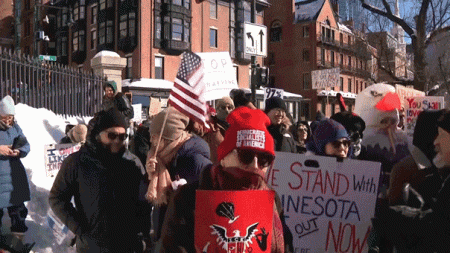President’s Passionate Address on a Concerning Public Health Crisis
In a recent address that captured the attention of the nation, the President delivered an emotionally charged speech focusing on what he characterized as a deeply troubling development in public health. Speaking with evident concern and urgency, the President framed the issue as “one of the most alarming public health developments in history,” using language designed to convey the gravity of the situation. While the emotional weight of his message resonated with many listeners, health experts have noted that several of his scientific claims merit closer examination. The juxtaposition of the President’s passionate delivery against questions regarding the scientific accuracy of his statements has sparked important conversations about the responsibility of leadership communication during public health situations.
The President’s address employed powerful rhetoric and personal anecdotes that humanized the health issue, connecting with audiences on an emotional level that transcended partisan divides. By sharing stories of affected families and individuals, he transformed statistics into relatable human experiences that highlighted the real-world impact of the health concern. This approach effectively communicated the urgency he feels about addressing the situation, demonstrating his administration’s commitment to prioritizing what he perceives as a critical threat to public wellbeing. The emotional resonance of his delivery underscored how public health messaging from leadership figures can shape national perception and response to emerging health challenges.
Despite the compelling nature of the President’s delivery, the scientific community has expressed reservations about several key assertions made during the address. Medical experts and researchers have identified instances where the President’s characterizations appeared to diverge from current scientific consensus or overstated the evidence supporting particular claims. This gap between rhetorical urgency and scientific precision highlights the ongoing challenge of translating complex medical information into accessible public messaging without sacrificing accuracy. Some health professionals have emphasized that while raising awareness of potential health concerns is valuable, care must be taken to ensure that public statements from high-profile leaders align with evidence-based understanding.
The mixed reception to the President’s remarks reflects broader societal tensions regarding how public health information should be communicated to the general public. Supporters praise the President’s willingness to elevate the issue to national prominence, arguing that his emotional framing will mobilize resources and attention that might otherwise be directed elsewhere. Critics counter that scientific precision should not be sacrificed for rhetorical effect, particularly when addressing health matters where public understanding and response can significantly impact outcomes. This debate touches on fundamental questions about the balance between generating necessary public concern and avoiding potential mischaracterizations that could undermine trust in public health messaging.
The address comes at a time when the relationship between political leadership and scientific expertise faces increasing scrutiny across various public health domains. The President’s characterization of the issue as historically significant raises important questions about how we contextualize and prioritize different health challenges in an era of competing crises. Public health historians note that such dramatic framing creates both opportunities and risks – potentially mobilizing unprecedented resources while also creating expectations that may prove difficult to align with the complex realities of addressing multifaceted health challenges. The response from health agencies and medical professionals will likely shape how the public ultimately interprets and responds to the President’s message.
As discussions about the President’s remarks continue to unfold, they highlight the evolving nature of public health communication in contemporary society. The tension between emotional resonance and scientific precision is not merely an academic concern but has real implications for how citizens understand and respond to health guidance. Moving forward, finding ways to harness the attention-generating power of passionate leadership while maintaining fidelity to scientific evidence represents a critical challenge for effective public health messaging. The President’s address, whatever its scientific limitations, has succeeded in one crucial respect – bringing renewed attention to the complicated intersection of political leadership, scientific expertise, and public health communication in addressing emerging health challenges.






